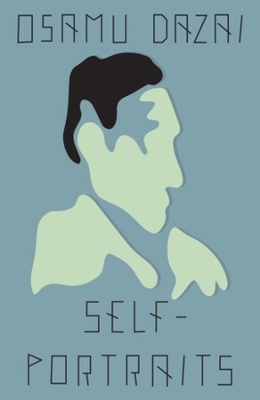
Networking Argument
Routledge (Verlag)
978-1-032-08497-8 (ISBN)
This edited volume presents selected works from the 20th Biennial Alta Argumentation Conference, sponsored by the National Communication Association and the American Forensics Association and held in 2017. The conference brought together scholars from Europe, Asia, and North America to engage in intensive conversations about how argument functions in our increasingly networked society.
The essays discuss four aspects of networked argument. Some examine arguments occurring in online networks, seeking to both understand and respond more effectively to the acute changes underway in the information age. Others focus on offline networks to identify historical and contemporary resources available to advocates in the modern day. Still others discuss the value-added of including argumentation scholars on interdisciplinary research teams analyzing a diverse range of subjects, including science, education, health, law, economics, history, security, and media. Finally, the remainder network argumentation theories explore how the interactions between and among existing theories offer fruitful ground for new insights for the field of argumentation studies.
The wide range of disciplinary backgrounds and methodological approaches employed in Networking Argument make this volume a unique compilation of perspectives for understanding urgent and sustaining issues facing our society.
Carol Winkler is Professor of Communication Studies at Georgia State University, USA, where she leads the interdisciplinary Transcultural Conflict and Violence Initiative and is a former Associate Dean of Humanities. A former President of the American Forensics Association, she served as Principal Investigator on grants that funded urban debate programs to Atlanta and Milwaukee, including the Computer Assisted Debate Program selected as the signature school program for the 2005 White House’s Helping America’s Youth initiative. She has also served as an invited technical consultant for the U.S. Bureau of Justice Administration to expand the benefits of debate to low-income communities. Her current research program focuses on presidential rhetoric, extremist discourse, and visual arguments related to terrorism. Her book, In the Name of Terrorism (2006), won the National Communication Association’s Outstanding Book Award in Political Communication, and her co-authored article on how certain visual images stand as ideological markers of the culture won that same organization’s Visual Communication Excellence in Research Award. She is currently working as co-principal investigator on a Minerva funded project, ‘Mobilizing Media’, which analyzes the media campaign of violent extremist groups in the Middle East and North Africa.
Keynote Address
1. Disavowing Networks, Affirming Networks: Neoliberalism and Its Challenge to Democratic Deliberation
Robert Asen
Spotlighted Theories and Practices of Networking Argument
2. Substance: An Exploration of the State of Argument in the Post-Fact Era
James F. Klumpp
3. Ideology, Argument, and the Post-Truth Panic
Dana L. Cloud
4. A Materialist Perspective on Argument Networks as Contentious Politics
Ronald Walter Greene
5. More Disingenuous Controversy: Hashtags, Chants, and an Election
John Fritch and Catherine Helen Palczewski
6. How Technoliberals Argue
Damien Smith Pfister
7. Network Matters: Black Lives and Blue Lives Advocacy in On and Offline Settings
Maegan Parker Brooks
8. Networked Public Argument as Terrain for Statecraft
Craig Hayden
Strategic Use of Definition in Networked Argument
9. Ideological Conservatism vs. Faux Populism in Donald Trump's Inaugural Address
David Zarefsky
10. Populists Argue, but Populism Is Not an Argumentation (And Why the Distinction Matters for Argumentation Theory)
David M. Cheshier
11. Contrasting Ideological Networks: Ronald Reagan and Donald Trump
Robert C. Rowland
12. The Cyber Imperative: Ligatures as Ordering Devices
Ilon Lauer
13. The Agentic Earth Topos: Figuring a Violent Earth at the End of the Anthropocene
Joshua P. Ewalt
14. What Makes a Woman a Woman? The I.O.C.'s Deliberation over Sex in International Sport
Jaclyn Nolan
15. The Discursive Construction of the Anti-Nuclear Activist
Ian Summers, Alley Agee, Monica Renae Scott, and Danielle Endres
16. The Visible and the Invisible: Arguing about Threats to Loyalty in the Internet Age
Adam Blood and Ronald Lee
17. When Do Perpetrators Count: A Longitudinal Analysis of News Definitions of Deceased Mass Shooters
Dakota Park-Ozee and Jason Jordan
18. Defining "Birth Rape": Networked Argument Resources for Mothers' Advocacy
Beth L. Boser
19. When They Found Her: Networked Argument and Contested Memory
Sarah T. Partlow Lefevre
Strategic Use of Association and Dissociation in Networked Argument
20. Reading Freaks: Trump in an Analogical Hermeneutic Network
Angela G. Ray and Robert Elliot Mills
21. Petitioning a Mormon God: Analogical Argument as a Means of Revelation in
the Ordain Women Movement
Brian Heslop
22. Extinguished Dissent: Norman Morrison's Self-immolation as Argument by Sacrifice
Meredith Neville-Shepard
23. Timescape 9/11: Networked Memories
Jeremy David Johnson
24. Analogy and Argument in the Rhetoric of Science
Jay Frank
25. Specification, Dissociation, and Voting Rights in the United States
James Jasinski
26. Hispanic Politicians on the Rise: Argumentation Strategies of Ted Cruz and Marco Rubio
Ann E. Burnette and Wayne L. Kraemer
27. Escaping the "Broken Middle": Establishing Argumentative Presence within Association and Disassociation
Aaron Dicker
28. Challenges of Networked Circulation within Advocacy Campaigns
Ruth J. Beerman
29. Accumulating Affect and Visual Argument: The Case of the 2015 Japanese Hostage Crisis
Naoki Kambe
30. Analyzing Public Diplomacy for Japan-U.S. Reconciliation
Hiroko Okuda
Strategic Use of Authority in Networked Arguments
31. Challenging a Culture of Secrecy: Investigating the Emergence of Antenarrative Storytelling in Community Responses to the Hanford Nuclear Reservation
R. Brandon Anderson
32. The Visual Depiction of Statehood in Daesh's Dabiq Magazine and al-Naba' Newsletter
Kareem El Damanhoury
33. Networked Argumentation via Collective Rhetorics at the Women's March on the Utah State Capitol and the Women's March on Washington
Alley Agee, Dakota Park-Ozee, and Allison Blumling
34. Climate Change Argumentation: Subnational Networks, Interest Convergence, and Multiple Publics
William Mosley-Jensen
35. Networking, Circulation, and Publicity of Climate Change Discourses and Arguments: An Examination of Leonardo Dicaprio's Climate Change Advocacy
Andrew J. Hart
36. Arguments for Women's Banks and the Possibilities and Limits of Corporate Structural Mimesis as Private-Public Argument Networks
David B. Hingstman
37. Administrative Arguments and Network Governance: The Case of Women's Health
Zornitsa Keremidchieva
38. Networks of Violence: Converging Representations of the Eric Garner Lynching
Samuel P. Perry
39. Performing Hegemonic Masculinity: Trump's Framing of U.S. Foreign Policy
Heidi Hamilton
40. Argument and the Foundations of Social Networks: Affective Argument and Popular American History
Michael Janas
41. Data Cannot Speak for Themselves: Unreasonable Claims within the Big Social Data Community
Candice L. Lanius
42. Scientific Argument Networks and the Polytechtonic Art of Rhetoric
L. Paul Strait
Argument Circulation in Online Networks
43. Arguments of a New Virtual Religion: How Athenism "Clicks" New Members and Reimagines the Mind-Body Dualism
Emma Frances Bloomfield
44. "Nasty Women": "Dialectical Controversy," Argumentum Ad Personam, and Aggressive Rebuttals
G. Thomas Goodnight
45. The Rage Network: Form, Affective Arguments, and Toxic Masculinity in Digital Space
Casey Ryan Kelly
46. Polemic Platforms and the "Woman Card": Trumping Truth with Enthymemes in the Twitterverse
Joan Faber McAlister
47. Following Affective Winds Over Panmediated Networks: Image-Drive Activism in Chengdu, China
Elizabeth Brunner
48. Je (Ne) Suis...: Exploring the Performative Contradiction in Anti-Clicktivism Arguments
Aaron Hess
49. Memes as Commonplace: Ted Cruz, Serial Killers, and the Making of Networked Multitudes
Jonathan S. Carter
50. Critical Deliberation Under Fire: Milblogging, Free Speech, and the "Soldiers' Protocol to Enable Active Communication Act"
Michael K. Middleton and Kevin A. Johnson
51. Embedded Argumentation in Digital Media Networks: On "Native" Advertising
Seth Fendley
52. Too Srat to Care: Participatory Culture and the Information Economy of Total Sorority Move
Amber Davisson and Kelsey Jackson
53. Social Physics and the Moral Economy of Spreadable Media: An Integrated Model for Communication Networking
Zachary Sheldon
Argument Circulation in Offline Networks
54. Networks of Argument and Relationality in the Contemporary Use of Auschwitz Numbers in the New England Holocaust Memorial
Linda Diane Horwitz and Daniel C. Brouwer
55. Networked Reconciliation
Tyler Hiebert, Randall A. Lake, and Chris Robbins
56. To Tell Our Own Truths: Settler Postcolonialism as an Antecedent to Native American Argumentation Studies
Margret McCue-Enser
57. Rhetorical Rumors: Hauntology in International Feminicidio Discourse
Jose Angel Maldonado
58. Networked Memories: Remembering Barbara Jordan in 21st Century Immigration Debates
Carly S. Woods
59. Remembering Roosevelt: Arguing for Memory Through Public and Private Networks
Chandra A. Maldonado
60. Appearance Trumps Substance: The Enduring Legacy of the Great Debate of September 26, 1960
Sara A. Mehltretter Drury and Dale A. Herbeck
61. "Morning in America": Ronald Reagan's Legacy of Population as Argument
Paul Elliott Johnson
62. Networking Legal Arguments: Prudential Accommodation in National Federation v. Sebelius
M. Kelly Carr
Evaluating Argumentation Networks
63. Rising to the Defense of Ad Hominem Arguments
David Cratis Williams and Dale Hample
64. The Fallacy of Sweeping Generalization
David Botting
65. Exhortation in Interpersonal Discussion
Susan L. Kline
66. Writing about Serial Arguments: The Effects of Manipulating Argument Perspective
Amy Janan Johnson, Ioana A. Cionea, Eryn N. Bostwick, Megan A. Bassick,
and Nathan J. Lindsey
67. Argumentativeness and Verbal Aggressiveness Are Two Things Apiece
Dale Hample
68. Is Fact-checking Biased? A Computerized Content Analysis
Jeffrey W. Jarman
69. Building Arguments and Attending to Face in Small Claims Court: Distinctive Features of the Genre
Karen Tracy
70. Argumentation as a Practical Discipline
Robert T. Craig
71. Networks, Norms, and the Problem of Capable Arguers
Timothy Barouch
72. The Micropolitics of Control: Fascism, Desire, and Argument in President Trump's America
George F. (Guy) McHendry, Jr. and Nicholas S. Paliewicz
Evaluating Debating Networks
73. Networking Debate and Civic Engagement: Measuring the Impact of High School Debate Camps
Brian Lain and Karen Anderson-Lain
74. Designing Public Debates to Facilitate Dynamic Updating in a Network Society
Justin Eckstein and Gordon R. Mitchell
75. Community-Based Participatory Debate: A Synthesis of Debate Pedagogy, Practice, and Research
John J. Rief and Rachel Wilson
76. Text, Talk, Argue: How to Improve Text-Driven Political Conversations
Don Waisanen, Allison Hahn, and Eric Gander
77. Gender Diversity in Debate in Japan: An Examination of Debate Competitions at the Secondary and Tertiary Levels
Junya Morooka
78. Conceptualizing Academic Debate in Japan: A Study of Judging Philosophy Statements
Kaori Miyawaki and Katsuya Koresawa
79. Big in Japan?: A Note on the Japanese Reception of American Policy Debate
Satoru Aonuma and Kazuhiko Seno
80. Evolutions and Devolutions in Practice: Theory Arguments in Recent English-speaking College Policy Debate in Japan
Noriaki Tajima
81. Notes on the Humor of Translation: American Policy Debate Theory and Comic Translations
Brian Lain
| Erscheinungsdatum | 01.07.2021 |
|---|---|
| Verlagsort | London |
| Sprache | englisch |
| Maße | 174 x 246 mm |
| Gewicht | 961 g |
| Themenwelt | Geisteswissenschaften ► Sprach- / Literaturwissenschaft ► Anglistik / Amerikanistik |
| Geisteswissenschaften ► Sprach- / Literaturwissenschaft ► Literaturwissenschaft | |
| Geisteswissenschaften ► Sprach- / Literaturwissenschaft ► Sprachwissenschaft | |
| Sozialwissenschaften ► Kommunikation / Medien ► Kommunikationswissenschaft | |
| ISBN-10 | 1-032-08497-9 / 1032084979 |
| ISBN-13 | 978-1-032-08497-8 / 9781032084978 |
| Zustand | Neuware |
| Haben Sie eine Frage zum Produkt? |
aus dem Bereich


